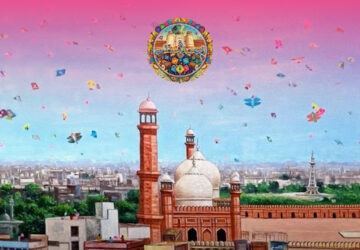Jalaluddin Muhammad Rumi was a Persian poet, Sufi mystic, and Islamic scholar from the 13th Century. His poetry has been widely translated throughout the world. Rumi’s quotes are inspiring and transcend geographical barriers. But what if we tell you that Rumi’s quotes that you put up on your Instagram, might be just fake? Sounds unbelievable, right?
So let’s take you through the facts.
Rumi is a widely celebrated poet. Madonna quotes his words. Brad Pitt tattoos them. Ivanka Trump tweets them.
But Rumi was a Persian Poet, so his work has to be translated in English to be relevant for white people. Coleman Barks was the person who earned himself a name by translating Rumi’s works.
But does Coleman Barks know Persian, or Sufism, or even Islam? Apparently…no. He allegedly did not have any credentials that could qualify him to translate Rumi’s poetry.
In this New Yorker article, Barks says, ”Religion is such a point of contention for the world. I got my truth and you got your truth—this is just absurd. We’re all in this together and I’m trying to open my heart, and Rumi’s poetry helps with that.”
Barks also claimed that his work is closer to the true ”essence” of Rumi.
Let us give you an example of Rumi’s original work as opposed to Barks’ translation
You might be familiar with the quote ”Out beyond ideas of wrongdoing and rightdoing, there is a field. I’ll meet you there.”
You might get surprised at what you’ll see.
Rumi’s original version is based on Islamic and Quranic context. There is no ”rightdoing” or ”wrongdoing”. Instead, he has clearly written ”Islam” and ”Kufr”. A Muslim Scholar could never have preferred a middle space for compassion, negating the religious and moral code.
Take a look at another one of Rumi’s poems
The original one is for the repenters and the seekers. Rumi is implying that the doors of Almighty are open for anyone who wants to straighten his path. But the English translation has given it some sort of romantic context.
Zirrar.com’s ”Reading Rumi” article features even more examples of mistranslated texts.
Apparently, if you want to read some authentic translations of Rumi’s work, you should get your hands on Jawid Mojaddedi books
He translated all the six books of the Masnavi into English.
So basically, Barks removed the original religious context of Rumi’s works. He translated them into feel-good renditions, to bridge the spirituality gap widespread in the West. Our whole lives have been a massive lie! Before you curse Barks, why don’t we put an effort to read the original works of Rumi? That might help us even more.
What do you think of this massive theory? Let us know in the comments!







